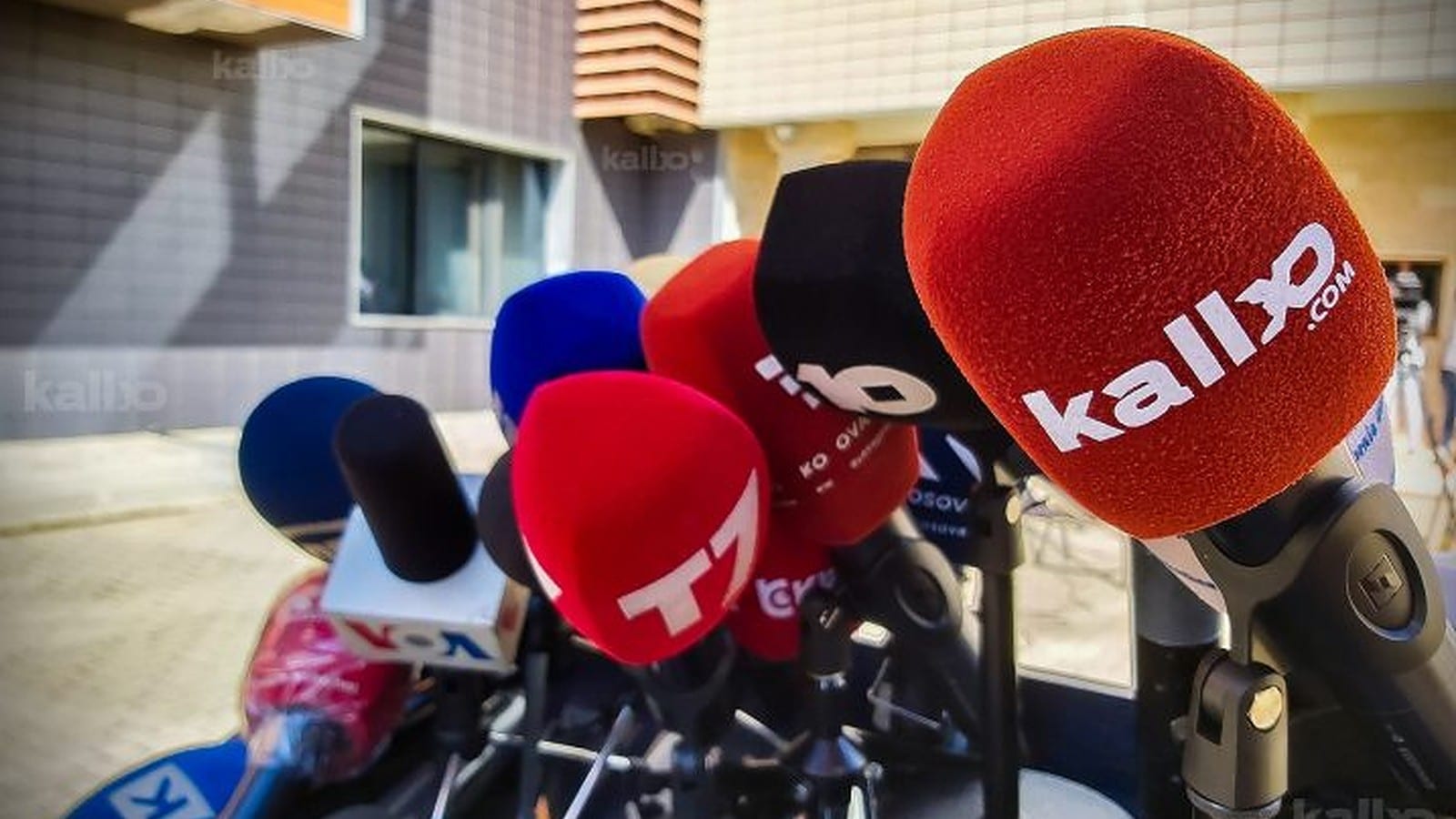The Constitutional Court of Kosovo has annulled the Law on the Independent Media Commission, ruling that several of its provisions do not follow the Constitution.
Kosovo’s Constitutional Court on Wednesday annulled the Law on the Independent Media Commission, IMC, ruling that several of its provisions are incompatible with the Constitution, following numerous opposition and media organisations’ complaints over its provisions.
The court’s decision follows a referral from opposition MPs representing the Democratic Party of Kosovo, PDK, and the Democratic League of Kosovo, LDK, who argued that the legislation was adopted without public consultation and posed significant threats to media independence.
The law, approved by Kosovo’s Parliament in July 2024, without the participation of opposition parties in the vote, expanded the IMC’s authority, including over online media that produce video content. Previously, such licensing and regulation were limited to traditional audiovisual media.
The new legislation also proposed changes in the structure and appointment process of the IMC board, which sparked widespread criticism among civil society, media organisations, and international observers.
In its ruling, the Constitutional Court found that several provisions—specifically those concerning the selection and dismissal of commission members, the powers of the IMC, media ownership regulation, and the imposition of sanctions and fines—conflicted with constitutional guarantees.
The Constitutional Court emphasised that public consultations must go beyond simply meeting formal requirements; instead, “they should involve meaningful, substantive debates on all aspects of a legislative proposal.”
In particular, the Court was concerned with two subparagraphs that introduced vague and abusive grounds for dismissal, such as “loss of trust,” “damage to integrity,” or “biased positions,” regarding the dismissal of the chairperson and members of the IMC.
The Court stated that these provisions violate Article 7 of the Constitution, which ensures the democratic character and impartiality of public institutions.
The Court also clarified that while IMC members serve four-year terms, their mandates do not automatically extend until successors are appointed.
“The Assembly is obliged to meet its legal responsibility to appoint the Chair and members of the Independent Media Commission within legal deadlines, so that outgoing members do not remain in office without justified reason,” the court stated.
In January 2025, the IMC controversially elected Besnik Berisha as its new chair, following amendments to internal regulations that allowed the early appointment of new leadership changes, which critics said were politically motivated and indicative of interference.
A welcome decision

Kosovo media outlets’ microphones. Photo: BIRN
In August 2024, the Association of Journalists of Kosovo, AJK, submitted formal comments to the Constitutional Court, challenging several aspects of the law, including the proposed increase in board members, as unconstitutional.
The law’s annulment was welcomed by the AJK, whose board chair Xhemajl Rexha said the ruling is a “victory for media freedom and democracy in Kosovo.”
Speaking to Prishtina Insight, Rexha said AJK had raised concerns for over three years about the government’s lack of transparency in drafting the law and the potential for political interference in the commission’s work.
“We are pleased the Court ruled to annul the law entirely. From the beginning, we voiced our opposition due to the government’s exclusion of stakeholders and its attempt to push through provisions that clearly contradicted the spirit of the Constitution,” Rexha said.
He noted that one of the AJK’s major objections was the proposed increase in the number of IMC board members from seven to eleven, which he said was intended to “capture the commission” by the ruling Vetëvendosje-led government.
“The court has determined that increasing the number of members is not appropriate.”
Rexha warned that the law’s enactment would have allowed direct appointment of the IMC chair by a parliamentary majority, opening the door for political manipulation.
“The Court made it clear that such changes carry the risk of politicising the commission—something we’ve long warned about. Vetëvendosje and Prime Minister Kurti’s government have repeatedly shown hostility toward the media,” he said.
He added that had the law come into force, it would have enabled the government to fill the IMC with pro-Vetëvendosje figures capable of making “retaliatory decisions against independent media outlets.”
“The drafting process excluded key stakeholders. That’s what the Court emphasised—the government did not involve the most relevant actors to help shape a fair and balanced law,” he noted.
Rexha also recalled that in 2022, along with media lawyer Flutura Kusari and Imer Mushkolaj of the Kosovo Press Council, she had requested a meeting with the Prime Minister’s Office. They were promised full inclusion in the law-drafting process, but that never happened.
“The involvement of all stakeholders from the very beginning in drafting the law is crucial. What was not done last time, and what the court has emphasised, is that the government did not call the key stakeholders or include them in the process to help ensure the law would be as effective as possible, and this was done intentionally.”
Legal advisor Flutura Kusari also reacted publicly following the Court’s decision, writing on Facebook that, beyond recommendations being ignored by the Prime Minister’s Office, they have been faced with “contempt, rejection, slander, and dehumanisation” towards critics of the draft law.
“The result of this approach is three wasted years, a drop in the global press freedom index, and international embarrassment,” Kusari wrote.
The law had triggered strong backlash from domestic and international press freedom organizations.
The IMC, established in 2005, is the primary regulatory body responsible for overseeing the broadcasting frequency spectrum in Kosovo.
The now-annulled law had extended this oversight to digital platforms, requiring online media outlets producing video content to be licensed by the commission.





